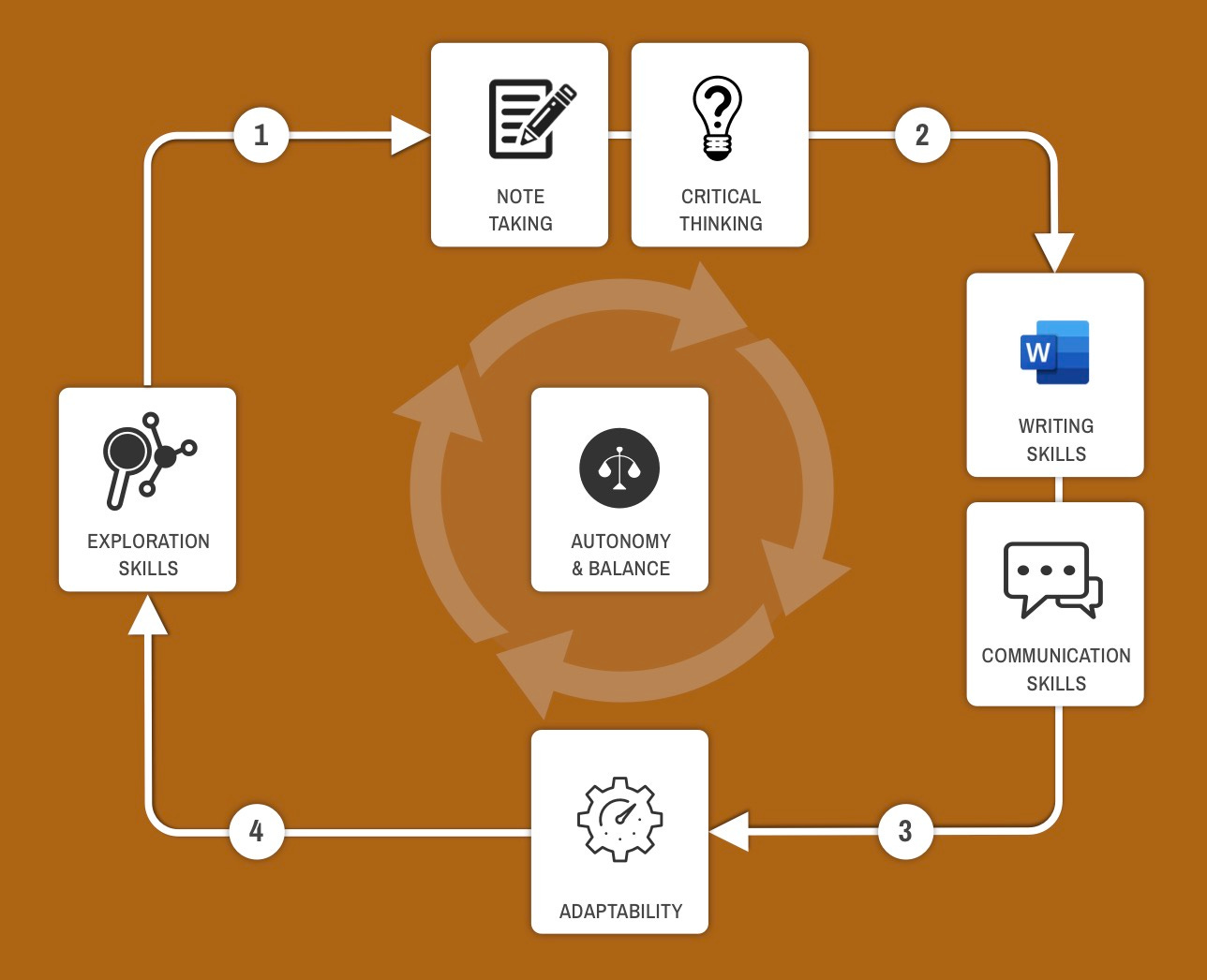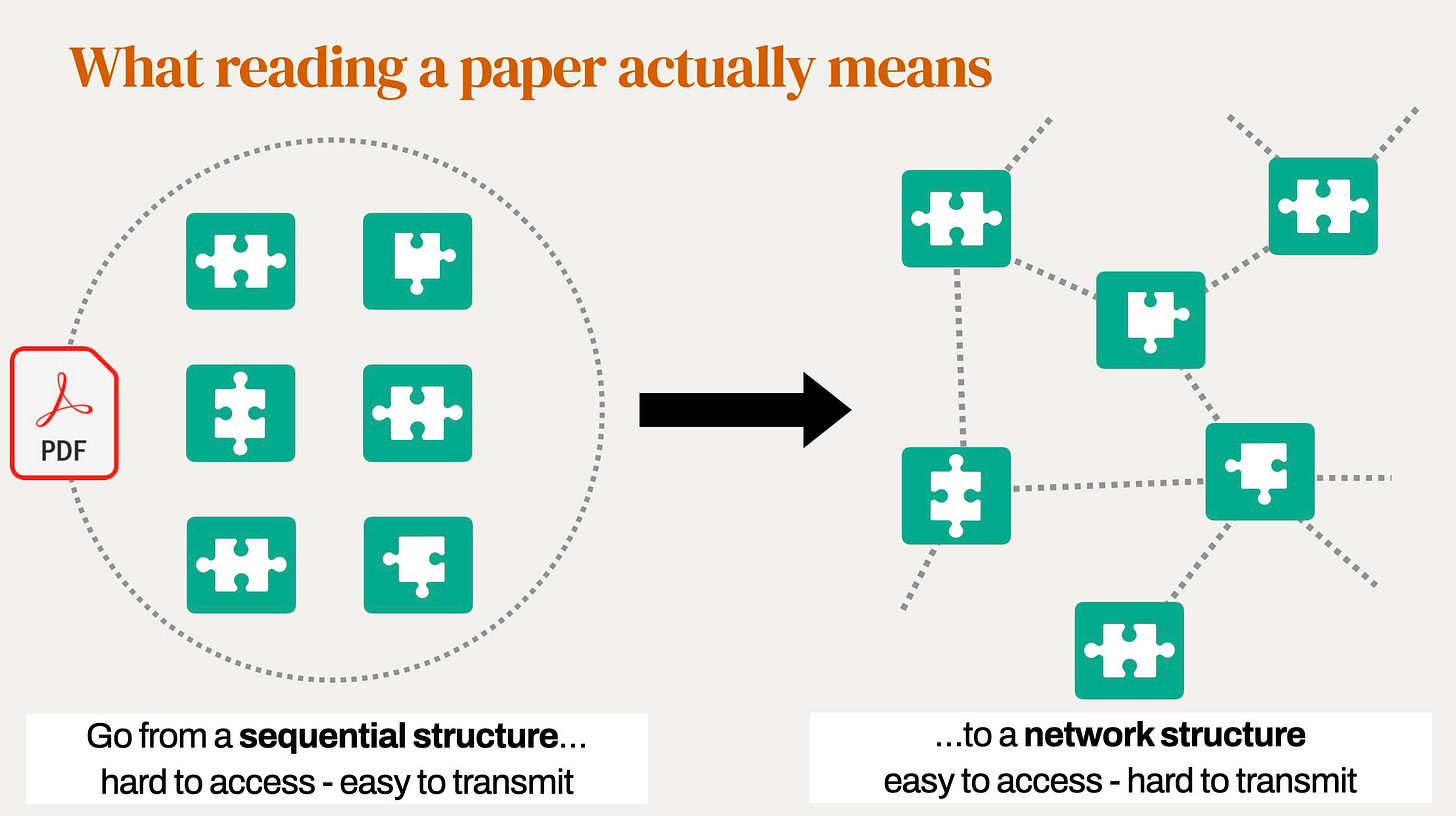The Effortless Academic's Manual
For most, academic success is a matter of talent. I don't think it's true. Good research skill can be learned, but universities focus on WHAT, not HOW to learn. This is the gap I hope to bridge.
My Blog has moved
If you want to receive tips, updates, and new updates, head to my website.
When you learn to cook you start by using recipes. When you get into hiking, you look for a map to plan your trip. When you want to excel at a complex game like chess, you learn strategies.
All these are examples of learning how to do something. As an academic you rarely get the luxury of the how. Here is a lecture. Learn it. There is a test.
While it is not rocket science to figure out how to learn best, it is an entirely unnecessary hurdle.
Going to college can feel like learning to drive a car, but with nobody telling you how, just by trial and error. That was my experience too.
To change this I created the Effortless Academic’s Manual a workshop that takes 8-12 hours to complete and will teach you the HOW of becoming a more successful academic. Hint: It’s note taking with Obsidian.
What are the skills needed by scientists?
The research “loop” starts at learning or collecting relevant information continues to making sense of it, writing it down and then adapt (in a personal way: i.e. respond to critique, draw conclusions etc or in a more systemic way: i.e. adapt new methods, ideas and tools).
Let’s break it down and see what tools and skills can help us with each respective step.
Exploration Skills
Finding literature is not difficult these days. It is much more difficult to find the RIGHT literature. If you are reading this newsletter for a while, you might remember the posts I made about literature discovery:
In a nutshell the ideas proposed there use tools (e.g. Litmaps) to investigate the reference network of a few seed publications. From there we can find any paper that is related to the subject matter.
Finally we identify the essential literature by using metrics like many citations in a short time or similarity.
Note Taking & Critical Thinking
After we have a dozen PDFs, we will need to read and analyze them. Tools like Scholarcy and SciSpace use AI to help us summarize the information.
This is a dead end in my opinion.
Information is connection. If a summary would give you insight, you could just collect abstracts. Instead:
This “curse of summaries” is what makes it so difficult for students to learn. Proper note taking shortened my academic career by years (in a good way!). And it all rests on a single realization:
Think in “Linked Concepts”, not Papers/Chapters/Books.
Summaries are inaccessible to our mind. Our brain is a network of connected ideas. The more we fit our note taking skills to this pattern, the more powerful it becomes.
This is what I hope to transmit with The Effortless Academic’s Manual, the course will go deep into the theory of how to split information, organize our notes, use Obsidian to structure it and become a better researcher.
It will change your attitude to the HOW of obtaining information.
Writing & Communication Skills
Writing can be daunting, especially the earliest stage: The blank screen.
These days ChatGPT can help you out. I am starting to explore this possibility for myself as well (a more in-depth post is in preparation).


But AI is a remedy for a symptom not a cure.
The cause is a lack of ideas as a consequence of messy or non existent notes.
Niklas Luhmann, the inventor of the Zettelkasten note taking system certainly had no trouble writing as he published dozens of books and hundreds of papers in his lifetime.
How? Well he had good notes! That’s why we model our note taking systems after his ideas.
I found that processing what you read into a “writing ready” format helps immensely. This older article contains ideas on how to set up my notes to be “more ready” for publication.
It all starts with good “Source Notes” to keep track of where your information comes from and critically anchor it into existing knowledge.
If you get this step correct the rest becomes much easier. This tweet explains the ideas in more detail.
The second step is the breaking down of information into collections and the reassembly in your own critical work.
Currently I am integrating ChatGPT and similar tools to work on snippets of my notes and the results are quite usable!
This is the core of the course I am releasing today - but it is a deep topic, best explored in a few hours and by example.
Adaptability
The skyrocketing success of ChatGPT makes the need to adapt apparent. New technologies will come and they will oust old ways.
But new tools benefit everyone - it is a matter of taking time to learn them. I follow this guy, to stay on top of the newest releases form ChatGPT.
If you are not yet a follower, check out my friend Mushtaq Bilal on Twitter to get new ideas on how to use AI in your academic writing. I really admire how quickly he understood and adapted these technologies into his academic environment. Definitely worth a follow!
I also interviewed Mushtaq on the use of Zotero and AI in the course. The interview will be part of the course.
Autonomy and Time Management Skills
Autonomy comes from a feeling of purpose. And purpose comes from your true desire to do something. This is the bottom line of my life’s philosophy that could fill pages to express fully.
It took me about 5 years to tap into this desire. I spent my early 30s bouncing off Ashrams and Shamans, trying to build different businesses and pursue ideas. A time as unrelated to my current life as it could possibly be on the surface, but it taught me to identify desire.
Whatever you truly desire, you will do without any guidance or pressure. This video sums up my controversial attitude to desire:
If you add desire to note taking you end up with planning techniques. I wrote about this here:
The Obsidian Canvas is a great tool to plan your academic research.
Why write all this?
This post is less practical than usually. But I felt it is necessary for a simple reason: Folks underestimate the importance of good learning skills and habits in academia.
My literature discovery posts were the most successful ones I ever had, yet it was just discovery. It takes around 2% of the time I spend doing research. Why is it so popular?
I think the answer is our culture. We value having over doing. More information, more summaries, more in a shorter time is better. But “more” often kills creativity. A creative chef can make a meal out of any ingredients.
Look at your whole self - use what you have in creative ways, with purpose and love.
The diagram at the beginning is there to motivate to think of academia as a PROCESS rather than an accumulation of knowledge. And the different skills involved as steps in this process. Research is not learning - it is sense making.
The Effortless Academic’s Manual, I hope, addresses the topic of creativity in a more generic and broad way. It gives you practical ideas that work together rather than instructions.
Over time I will add many more chapters to it, to cover other aspects of the academic process as well: Like using AI to write.
I usually don’t do discounts - but this course is much bigger and more expensive than my other courses so I decided to give a 21% discount to the first 20 people using the code: “EffortlessNewsletter”.
(Email me if you are from lower/middle income countries to get individual discounts)







Hi. I am a phd student from china, I want to ask for discount for your great course, but I can not find your email address.